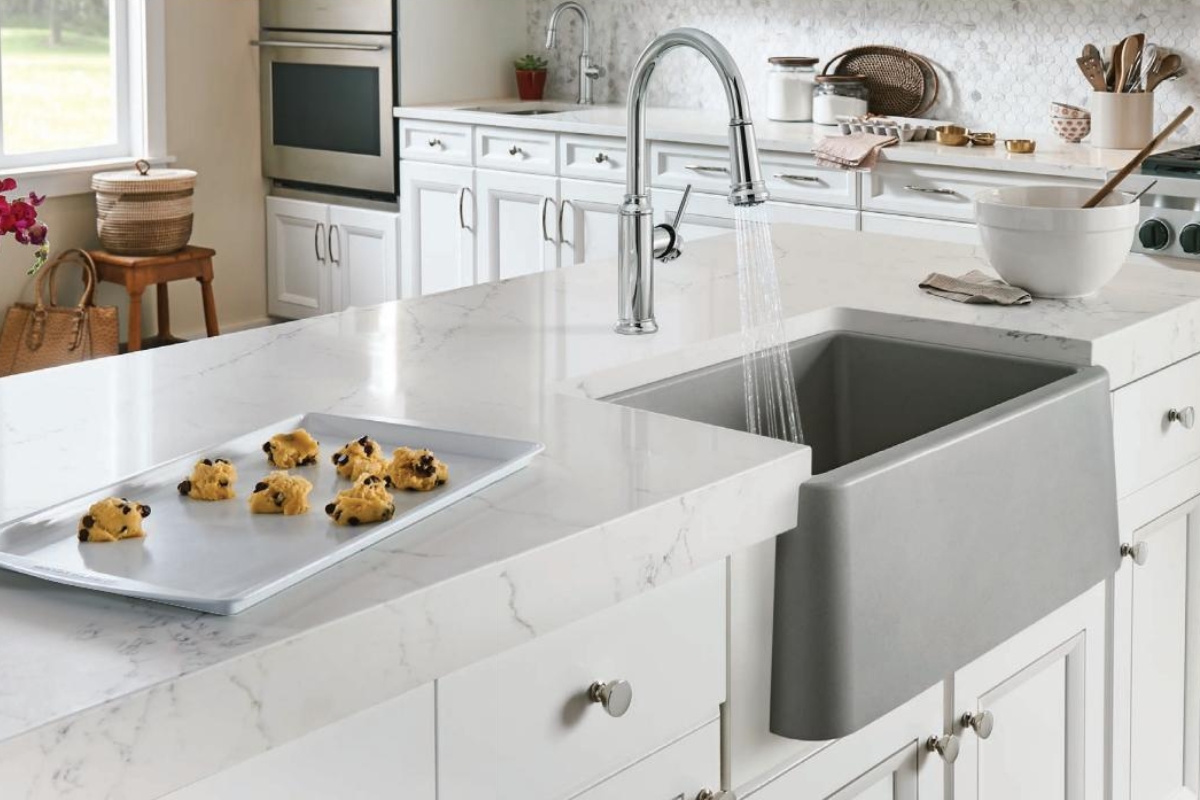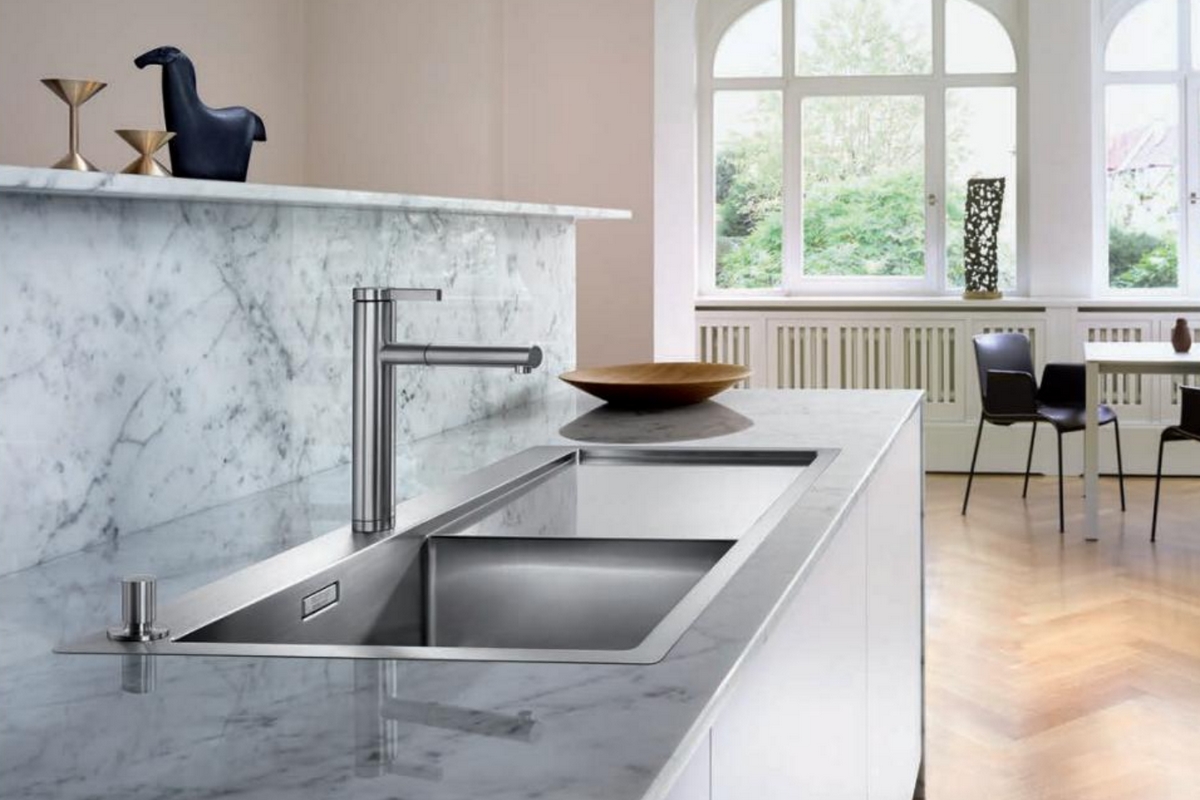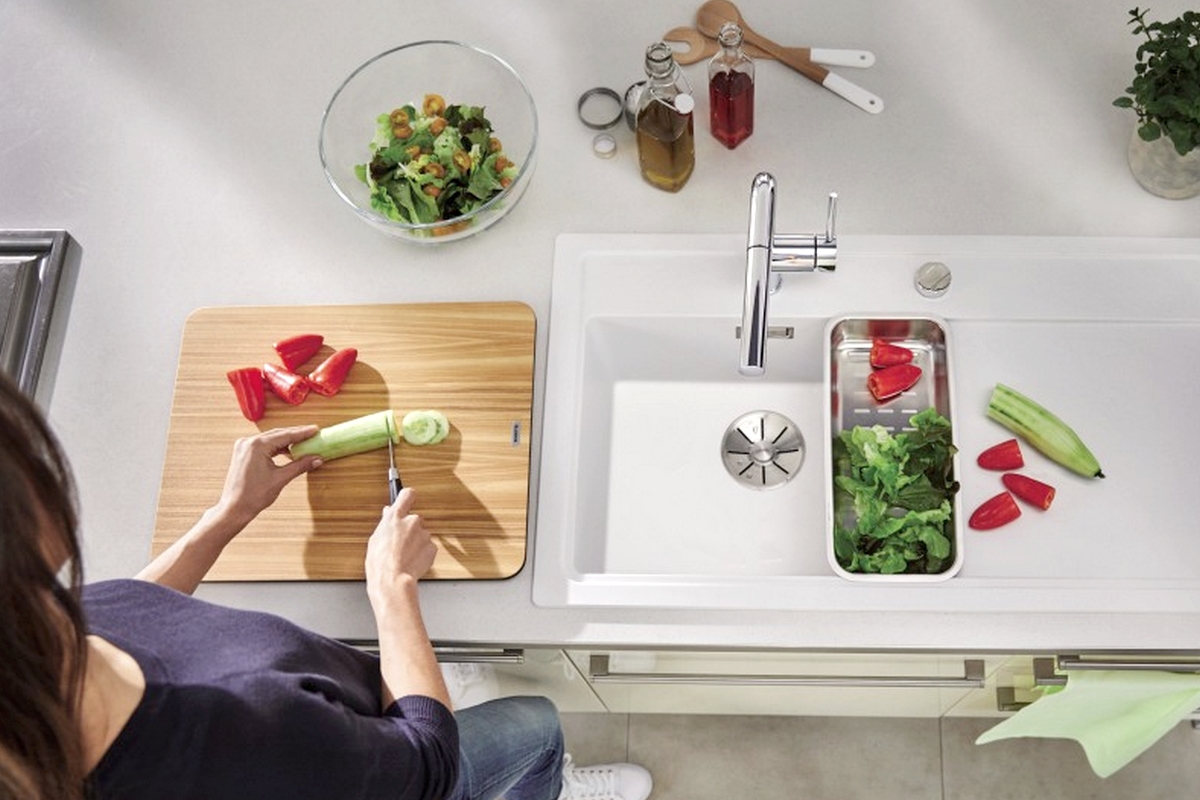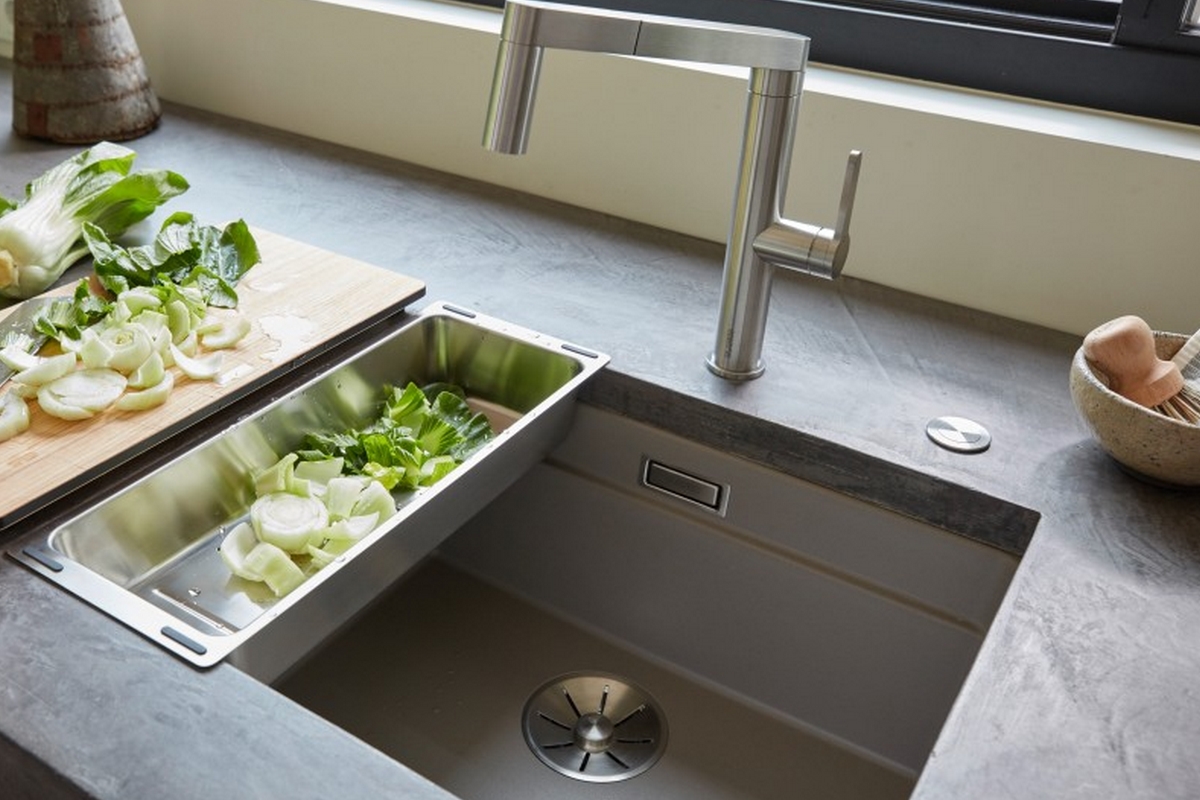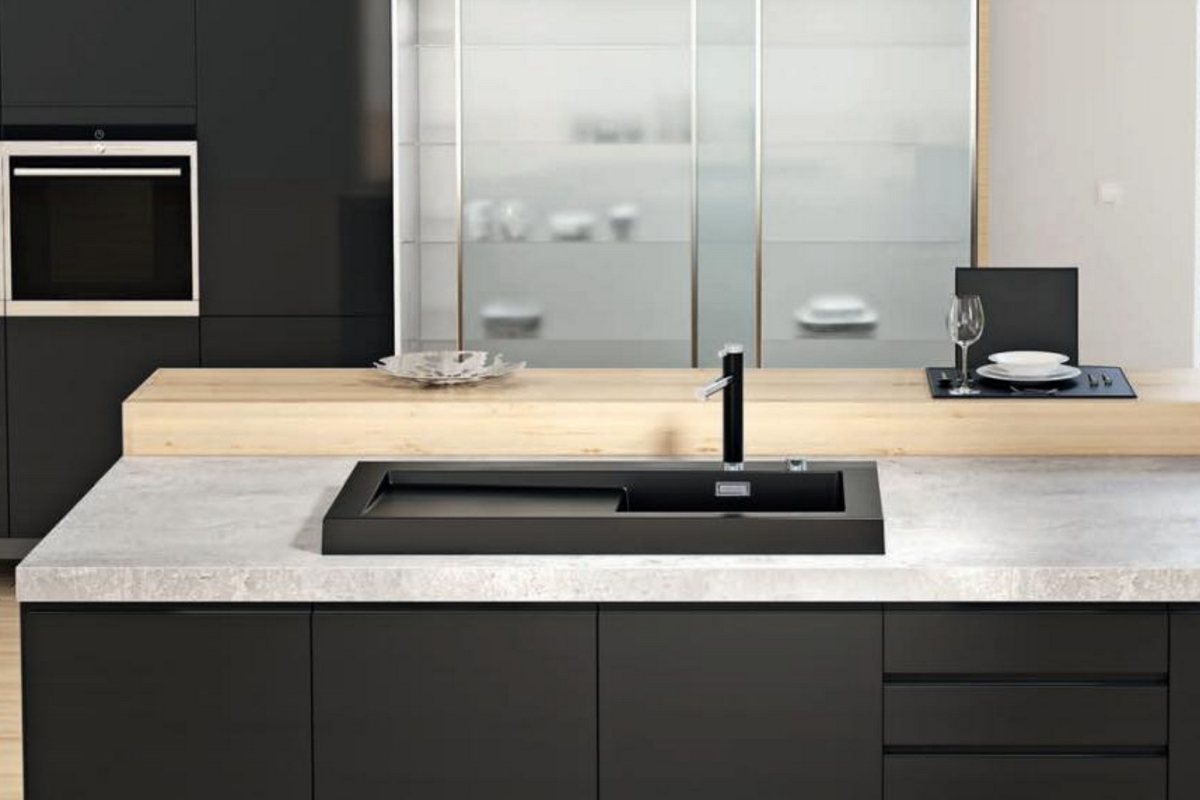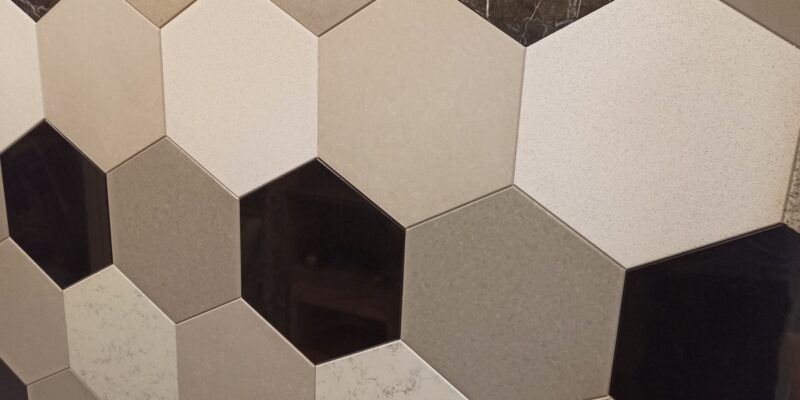
The most hygienic worktop is quartz
Sinks are usually brimming with bacteria, and some studies have even shown that the sink is one of the dirtiest places in the kitchen. We don’t have to look very far for the reason – in the sink we prepare food, wash and clean meat, fish and vegetables. This tends to result in the accumulation of dirt around the drain hole and in the waste water drain.
The recent viral outbreak has made people think more about hygiene, and when it comes to the pursuit of cleanliness in the home it would definitely be worthwhile to start in the kitchen, where the food we eat is prepared. It would therefore make sense to make more hygienic choices and choose a kitchen worktop and sink that are easy to clean.
How to maintain hygiene in the kitchen?
Any cook who loves cleanliness should wash their hands and products thoroughly before cooking, and clean the work surface where the food will be prepared. One of the most important requirements to avoid cross-contamination is to use different cutting boards for meat and vegetables. In the case of meat, it is worth favouring plastic or ceramic cutting boards, because meat juices can seep into the wood during cutting and spoil there, contaminating whatever is placed on the board next. Of course, raw meat and baked goods should also be kept separate so that they do not come into contact with each other.
Blanco’s Silgranit sinks and quartz worktops ensure a hygienically clean kitchen!
As noted, the worktop and sink used to prepare food tend to be some of the most bacteria-rich places in the home. Therefore, it is worth choosing quartz as your worktop, as it is low porosity and water-repellent, so that dirt, mould and germs do not accumulate, spread or multiply. Quartz is an artificial and extremely smooth material and its absorption coefficient is close to zero, ensuring that no food, oils or acid get into its pores. Silgranit PuraDur, developed and patented by Blanco, is also an artificial material invented with a view towards hygiene. While low porosity means that liquids and bacteria do not spread there in the case of an industrially created quartz worktop and a Silgranit sink, it goes without saying that the materials also do not take on different odours, which can be unpleasant.
Although the surface of the quartz worktop and the Silgranit sink do not collect dirt and bacteria, they should be cleaned regularly. Thankfully, caring for both materials is very easy!
The sink must be easy to clean
One of the advantages of a quartz and pressed granite sink is that cleaning and maintenance are definitely easy. On a daily basis, all that is required is to rinse the sink with clean water and lightly wipe it with a microfiber cloth. Wiping with a damp cloth is also enough to clean the quartz. However, if there is other dirt on the surface or sink – such as dried food or stains from cooking – you can safely rub the surface with a damp sponge. Dishwashing detergent may also be used; however, in order to maintain the original appearance of the worktop and the sink for a longer period, it would be wise to avoid cleaning agents which are too acidic. The best form of daily cleaning is still water and a cloth. More serious cleaning could be done about once a month, and once or twice a year it would be worth cleaning the sink with Blanco Activ deep cleaning powder and treating the surface with Nano Cream polish.
Silgranit is a durable material
In addition to Silgranit arguably being one of the most hygienic material choices for the kitchen sink, it also has other advantages. Artificial stone sinks are among of the most durable – there is no need to worry about scratches or dents, because the material is so strong. The stone-like material is not for covering the sink, Blanco sinks are not painted with a so-called granite crushed stone colour; instead, the entire sink is compressed from this patented stone mixture (80% granite), which has won several awards around the world. Silgranit also withstands heat well, tolerating up to 280 degrees, so you can place hot pots or pans, for example, in the sink without worrying.
However, one of the disadvantages is that since Silgranit is a very strong material, dishes being washing too vigorously may end up coming in contact with the sides of the sink, with the result being a number of broken glasses, although this is compensated for by the durability of the sink.
Silgranit PuraDur artificial stone sinks are an ideal choice for those who want to make more hygienic choices in their kitchen and want the most maintenance-free sink possible. Copious amounts of dirt and bacteria tend to accumulate in the sink, so the easier it is to maintain, the better. Check out Blanco’s selection of Silgranit sinks here, and put together the kitchen of your dreams!

